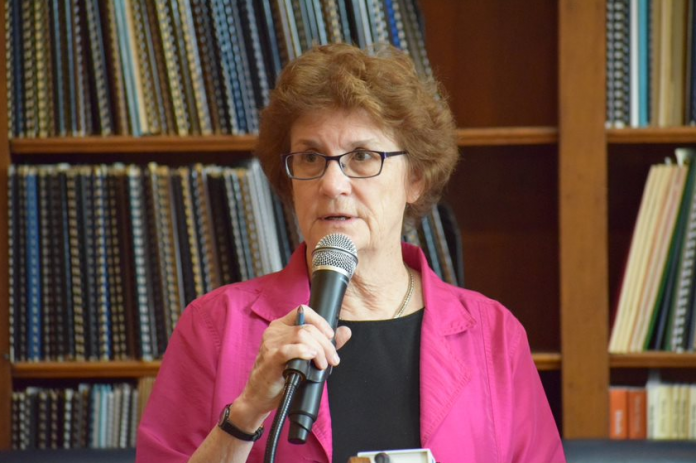
PROVIDENCE – Without the billions of dollars the state budgets for Medicaid each year, Sara Braganca might not have found the resources to survive colon cancer.
Braganca enrolled in Medicaid in 2016 after she was laid off and lost her health insurance. An unfortunate colon cancer diagnosis called for chemotherapy, radiation and surgery over the course of a year. Medicaid covered the expenses, which she would’ve otherwise been unable to afford.
“The freedom to focus on my health needs to get the best possible outcome without having to second-guess whether I could afford it was huge,” Braganca said. “Medicaid matters because it saves people’s lives. It saved mine.”
Medicaid spending comprises roughly 30 percent of Rhode Island’s fiscal year 2018 budget at $2.8 billion, about $1.6 billion of it from federal funds. That spending helps the elderly, disabled, families and low-income adults; all needs met by Medicaid that otherwise would have limited people’s quality of life or deprived them of it outright, according to The Economic Progress Institute’s report, “Medicaid Matters in Rhode Island 2018.”
“We hope readers will see the benefit of this state investment by absorbing the stories that beneficiaries share in the report, learning about the different populations of Rhode Islanders for whom Medicaid is a lifeline and realizing the ways that Medicaid dollars support our health care infrastructure, our economy, and our cities and towns,” said Linda Katz, EPI policy director.
Vincent Dejesus, disabled after brain tumor surgery 20 years ago, said Medicaid pays for a personal care attendant to help him with daily living activities he is unable to accomplish on his own.
“Without Medicaid, my quality of life would be very different. I currently work two days a week, but my biggest goal is to find a full-time job,” Dejesus said.
Medicaid provides access to health care and long-term care services as needed to 153,000 low-income children, parents and pregnant women through the RIte Care program. About 32,000 adults with disabilities, 19,000 seniors and 12,000 children with special health care needs are also enrolled. In January 2014, Rhode Island opened the Medicaid door to low-income adults without children, as authorized under the Affordable Care Act. More than 65,000 adults gained coverage as a result.
Cristina Amedeo, managing director of United 2-1-1, a free, confidential help line for people seeking social services to help them through crises, said the Medicaid-funded service is a vital resource for many Rhode Islanders, especially to seniors and people with disabilities, many of whom also have Medicare coverage.
Amedeo said Medicaid also supplements her commercial insurance, providing her son Alex with the therapies and services he needs. Alex was born with a rare medical condition that required him to have three major surgeries and other procedures before he was 2 years old. Although his physical health improved, his speech and social skills declined. “Medicaid helped connect our family to broader support networks in the community – other moms and dads – through programs [such as] the Autism Project,” Amedeo said.
“Proposed cuts to Medicaid in this year’s budget and the continued threat to Medicaid at the federal level make this report timely and relevant”, said Karen Malcolm, organizer for the Protect Our Health Care Coalition. “Talking to so many different people to collect stories and reading the data presented in this report underscores how vital the Medicaid program is to the health of our residents and our state. We must work together to ensure that our state continues to make necessary investments and that the federal government remains a strong partner in meeting the health care needs of all Rhode Islanders.”
Rob Borkowski is a PBN staff writer. Email him at Borkowski@PBN.com.












